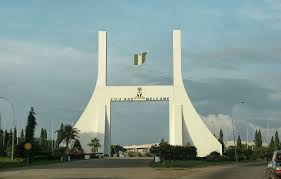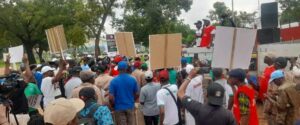
NG-CARES: LASG sensitises 1,716 new beneficiaries, says programme improving livelihood in vulnerable households
The Lagos State Government (LASG) has described the Nigeria COVID-19 Action Recovery and Economic Stimulus (CARES) initiative as a transformative scheme, serving as a catalyst for empowerment that addresses not only immediate needs, but creates a pathway for sustained prosperity.
Special Adviser to the Lagos State Governor on Sustainable Development Goals, Dr. Oreoluwa Finnih, made the assertion at a-one day sensitisation programme held Ikeja, the State Capital.
The event was organised for the new 1,716 beneficiaries admitted into the NG-CARES Labour Intensive Public Workfare (LIPW) DLI 1.2 across 20 Local Government Areas of the State.
Explaining the social intervention programme as a support system, Dr. Oreoluwa noted the scheme is providing opportunities for meaningful engagement and breaking the cycle of poverty acoss the State.
According to her, “Under the unwavering commitment of this administration to shared prosperity, the NG-CARES social impact initiative has become one of the driving forces in realizing the vision of the T.H.E.M.E.S Plus Development Agenda, standing as a testament to our dedication to alleviating poverty and fostering sustainable livelihoods.”
Speaking on the essence of the sensitization exercise, Dr. Oreoluwa stated that beneficiaries need to be enlightened about the myriad opportunities and benefits associated with their participation in the programme, maintaining that beneficiaries must understand the profound impact their dedication to the project can have in the life of the larger community.
“As beneficiaries, you are not just workers; you are integral members of a larger community working towards a common goal. We believe in your ability to make a positive impact. Your commitment to self-improvement and community betterment is commendable and serves as an inspiration to us all,” she enthused.
While maintaining that the transformative initiative which is being midwifed by the Office of the SDGs has achieved a significant milestone with the graduation of over 1,700 beneficiaries in the first phase, Dr. Oreoluwa explained that the inclusion of new set of beneficiaries underscores the programme’s scalability and its potential to reach an even larger audience.
“This expansion reflects our dedication to inclusivity and our firm belief that the benefits of sustainable development should be extended to as many individuals as possible. This platform has already graduated over 1,700 beneficiaries from various communities, working with organizations like LAWMA, Public Works, Ministry of Transportation, LASPARK, Primary Health Cares, and other intervention agencies,” she noted.
She disclosed further that as the state continues to navigate emerging challenges, the government remains steadfast in its dedication to the well-being of every Lagosians, laying the groundwork for lasting positive change in the lives of our people at the grassroots level.
Earlier in her welcome address, the Permanent Secretary, Office of Sustainable Development Goals, Mrs. Tolani Oshodi affirmed that enrollment of the new beneficiaries into the Labour-Intensive Public Workforce is an essential step to extend the benefits of the social intervention and involve more vulnerable Lagosians in the project.
Represented by the Director, Administrative and Human Resources, Office of SDGs, Mrs. Nike Akanji, the Permanent Secretary revealed that the delivery platform plays a pivotal role in the overall implementation of the NG-CARE project, adding that the scheme has significantly enhance the socio-economic well-being of vulnerable members of our society and alleviate their challenges.
“The administration of Governor Babajide Sanwo-Olu is responsive to the necessities of the people and we are dedicated to providing opportunities to achieve a state of well-being and socially acceptable standards of living for all our citizens,” she stated.
The sensitisation exercise featured enlightenment sessions from officials of Lagos Waste Management Authority (LAWMA,) LASPARK, Public Works Corporations and Ministry of Transportation, including the Head of the State Care Coordinating Unit, Mr. Basit Baruwa.



